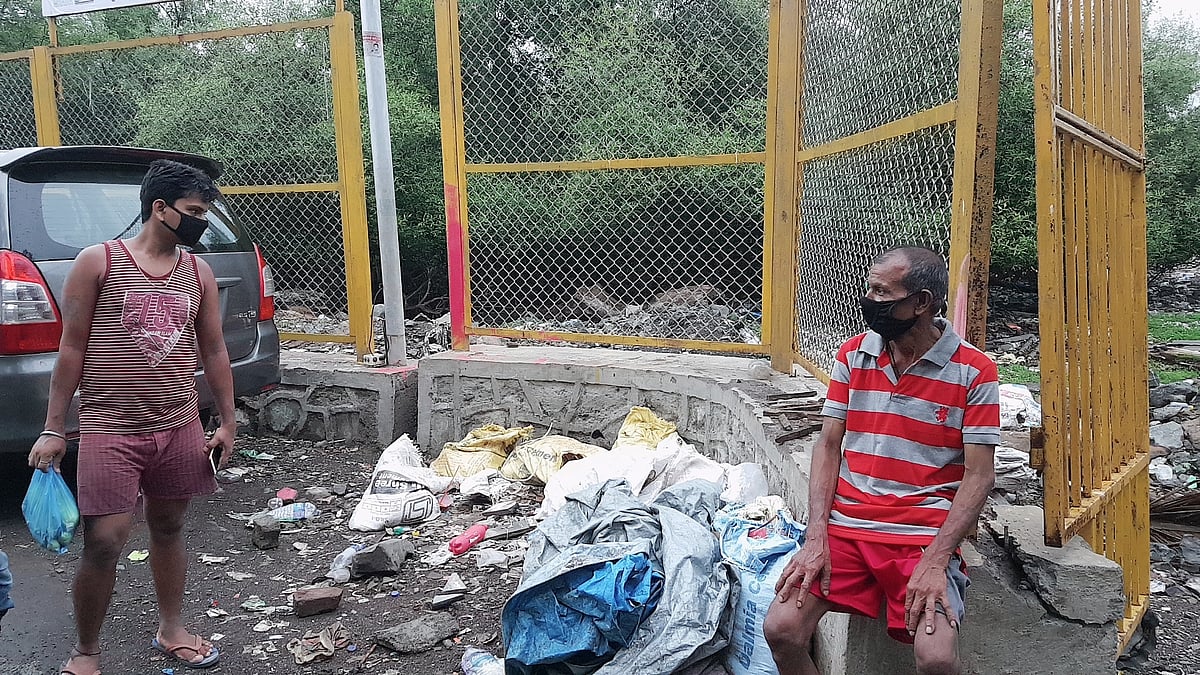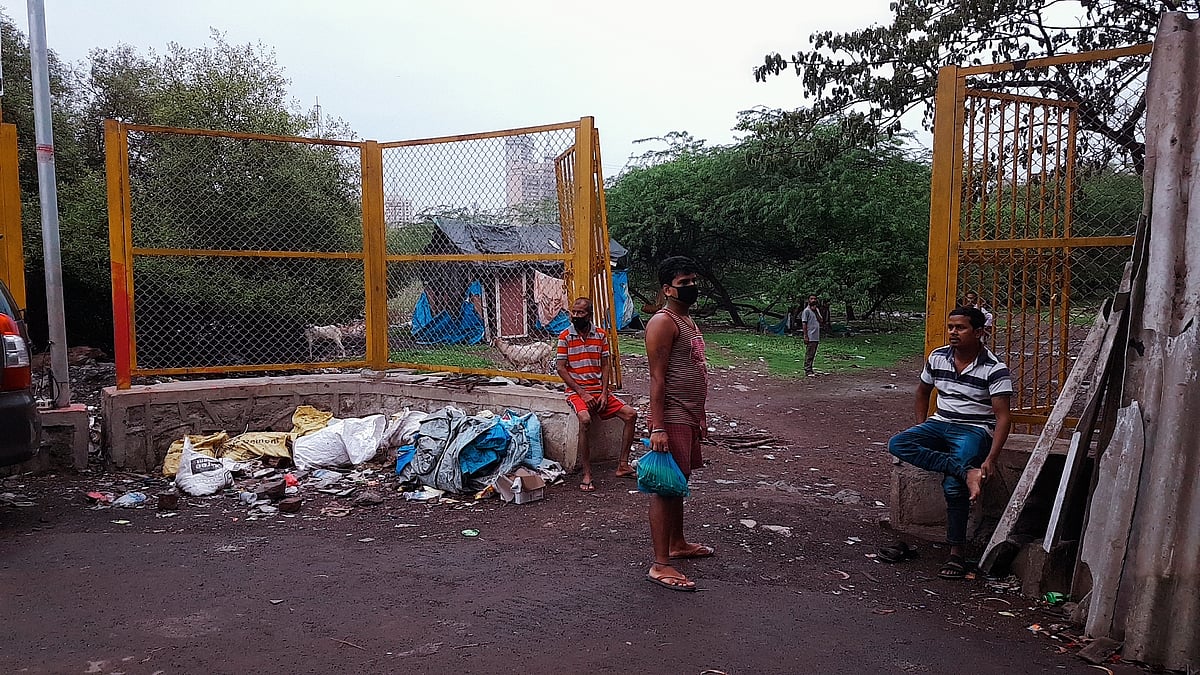Mumbai: Scenes of COVID-19 panic from the ‘Maximum City’
A constable calling his mother to say not to panic watching TV news, an old man looking for hospital, a social worker burying dead when no one will- Mumbai during COVID-19 has moving stories to share

Jeevan is a constable with the Mumbai police. Every other morning, he consoles his mother on phone, and tells her he will survive the day.
He wakes up knowing that his mother in the village will watch TV and panic. Her day will be spent in constant worry.
Jeevan is one among the few policemen who have an urge to question –the government, his seniors, the educated college-goers... He wants to know why they have donated their minds to televisions?
As such, disease is rampant in Mumbai, as is misery in the slums and in overused government hospitals. Why then, have the people woken up only now? And why are they not asking the government – at the Centre and in the state – to not panic. “Not for a disease with a death rate not much greater than the flu”, he says, referring to figures he derives from reading a well-known foreign scientist.
He tells me that he doesn’t hate the virus. He hates the TV media coverage, and the media people who create panic.
Salim Shaikh is a media person, the kind of person Jeevan might hate. But Salim says he doesn’t invent panic. He only reports it.
He is the editor/ owner of Galli News, a local news video outlet that caters to the Muslim community of Mumbai. His team covers COVID stories and releases them on YouTube, and shares them on WhatsApp groups. One such story is about a man who claims that his father died of hospital negligence and panic in COVID-19 times.
Another report mentions that 70 per cent clinics have closed in Govandi, an area that is teeming with poverty. Another report questions the national media for their anti-Muslim stance.
Salim's work gives an insight into the minds of perhaps the poorest section of Mumbai; Men, women, and often large families who can’t care for the science behind the disease, but care immensely for their daily food. At such a time, they will praise the Bohra community - with whom they have had issues – but which has offered space for COVID-19 patients in their 'luxurious hall', as per their own report.
So Salim just can’t care for the science and for matters that are not too close to daily subsistence. He has limited resources as a local channel, and his clients won't ponder much on it.
The pondering is done by men like Prakash Gidwani, an award-winning social worker from the suburbs, who dislikes the panic around the disease and the government’s management.

He is sixty-eight, and in an age-group that is at high risk from the virus. That doesn’t stop him from burying unclaimed dead bodies in cemeteries – a task that has gained him respect and given him sleepless nights.
He is at loggerheads with a policeman over the latter's misbehaviour. He is also unhappy with the way people in general have behaved with each other in crisis. He tells me that the people have mostly abandoned each other.
We see this in action when I seek his assistance in a matter:
A nearby old man I had met a few times, became ill and frail, and desperately needed a hospital bed. The police couldn’t assist, and led me instead to Prakash, who tried reaching out to the BMC personnel directly. We managed to get a bed, and saw for ourselves how the building people diligently shun their sick neighbours.
Then, from the same residential building, I came across a 'mentally slow' woman who kept asking for assistance for her sick husband – but apart from a few neighbours who helped with food, the others shunned her too. This woman is the wife of the aforementioned old man. And all the delay in getting him a bed added to his woes. He is currently critical.
Meanwhile, constable Jeevan watches another set of critical people, the migrants, who are on the road headed to Uttar Pradesh. They choose to leave in the dark of the night so the police doesn’t stop and hit them.
How dare we hit them – Jeevan wonders aloud and reminds himself to be soft spoken, lest someone in the station hears him and complains about him.
He is of the opinion that people have been kept in dark about the disease, made to panic, and then beaten when they flee for their lives. He considers this inhuman, as do a few other cop friends.
One of his friends is COVID positive but seems fine. The virus is not the worry for him, the panic is. So I discuss with Jeevan about the international findings about COVID, and tell him to pass this on to his friend. Jeevan thinks it is a good idea to help his friend with 'panic free' science.
Currently, Jeevan is passing on his knowledge to other panic stricken people in need. He spends his free time studying theories more popular among independent scientists than government appointed scientists.
But Salim can’t spread this science in his community. For how will people trust him when doctors themselves have stopped coming to clinics and hospitals? If doctors show panic, why won’t the people, most of whom are not educated?
So he is left a little helpless, and covers positive sounding events – how some men are feeding the poor and the hungry. Though in all such news, there is the strong underlying strain of despair.
In a video on his channel, MLA Amin Patel (from Mumbadevi) is appealing to the people to get tested for COVID, and he is met by comments asking for money for the tests – how can a family of five afford Rs. 22,500?
And Prakash knows about this all too well. For he has been using some of his own money for arranging COVID tests, and burials for the dead.
Even in the case of the old man whom we helped with a bed, Prakash claims he got good hospital discounts for him. Which is not a sign of hope. For it shows that even in a pandemic, there exists the culture of connections and nepotism.
But Prakash will not have to spend for this old man. Our efforts have awakened his building members into starting a fund for his hospital bills.
It seems a good act, but one of the residents tells me that actually they are afraid to be exposed as heartless. It is shame at work, not humanity.
(The old gentleman of this story passed away recently.)
Follow us on: Facebook, Twitter, Google News, Instagram
Join our official telegram channel (@nationalherald) and stay updated with the latest headlines
Published: 16 Jun 2020, 8:30 PM


